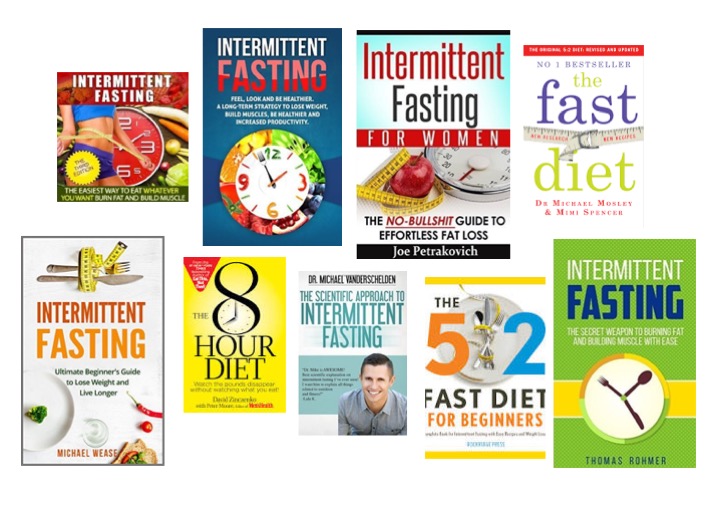Intermittent fasting - are we there yet? An interview with Dr Michelle Harvie
 Paula Goodyer
Paula Goodyer

The list of intermittent fasting books on Amazon goes on - and on, with pages of titles like Fasting: powerful ancient secrets to heal, stay healthy, slow ageing and boost energy.
But there’s still much to learn about using intermittent energy restriction for weight loss and other potential health benefits - and the hype often runs ahead of the science says Dr Michelle Harvie, the research dietitian who, with Professor Tony Howell, first developed the diet often known as the 5:2 diet. Their first book, the 2-Day Diet was published in 2013.
“A number of trials worldwide are looking at different approaches to intermittent energy restriction - including some looking at restricting kilojoules on separate days rather than two consecutive days and another restricting eating to a five hour feeding window. But we need longer studies to look at the long term effects - most studies have been no more than six months, says Harvie who works with the Prevent Breast Cancer Research Unit Manchester University Hospital Foundation NHS Trust in the UK.
“In theory, there should be benefits in addition to weight loss such as improved insulin sensitivity but we need to know if there are harms as well as benefits. There may be issues for elderly people, for instance. We also need to know more about what happens when healthy weight people use intermittent fasting. Many people who don’t need to lose weight are trying intermittent fasting because there are books claiming advantages like preventing dementia or slowing ageing.”
Animal research suggests intermittent and periodic fasting can help counteract some age-related problems including diabetes, Alzheimer’s and Parkinson’s disease, but we need randomised controlled clinical trials in humans comparing intermittent fasting with periodic fasting and continuous energy restriction to establish whether intermittent fasting can improve health in ways beyond weight loss, she adds.
But one new finding that emerged in a paper by Harvie and colleagues this year is that people on the 5:2 diet spontaneously reduce their kilojoule intake on non-fasting days by 19 per cent. The study, which needs to be replicated says Harvie, found that this reduction occurred across all non-restricted days including those immediately before and after the restricted days.
“We’re not sure why. It may be that there’s a behavioural component - people may feel more motivated to eat less or be more aware of appetite and hunger signals, but it may also be biological,” she says. “We’ve also published a qualitative paper looking at why people say they find the diet easy to follow and it’s because they don’t see it as a diet.”
Harvie’s current focus is on diet and exercise to prevent breast cancer - her collaborative research with the Iowa Women’s Health Study in 2005 suggested that preventing weight gain reduced the risk of postmenopausal breast cancer. She’s now principal investigator for a series of trials looking at diet and exercise programs for women with breast cancer. The B-AHEAD 2 trial compared intermittent energy restriction with continuous energy restriction during chemotherapy to see which is best for preventing weight gain - a common problem for women having chemotherapy and a possible risk factor for breast cancer recurrence. Results will be available early next year.
Meanwhile, the B-AHEAD 3 trial works with women with breast cancer which has spread to a secondary site to see if the 5:2 diet, plus resistance exercise, reduces chemotherapy toxicity, disease progression and fatigue and improves quality of life.
“If you can reduce the toxicity of chemotherapy it means women may be able to remain on treatment for longer,” she says.
Harvie is also involved in the MIDDAS study looking at whether an intermittent fasting approach makes a big difference to blood glucose control with type 2 diabetes.
“We know you can reverse type 2 diabetes with dramatic weight loss - UK research found that an eight week diet of 800 calories a day, using a liquid meal replacement can normalise blood glucose levels. We’re looking to see if an intermittent version might work - where people are on an 800 calorie liquid meal replacement two days a week over 28 weeks,” she says.
For dietitians with clients keen to try intermittent fasting for weight loss, Harvie suggests a) recommending evidence based approaches such as the 2-Day Diet and b) finding out what clients eat on non-fasting days. “There are so many versions of this diet and not all of them emphasise that the non-fasting days aren’t a free for-all,” she says.
And clients with breast cancer? “The main goals should be to avoid gaining weight, keeping up regular exercise and eating a Mediterranean style diet.”
All author proceeds from Michelle Harvie’s books go to the Genesis Breast Cancer Prevention charity.
Dr Michelle Harvie has presented for Education in Nutrition including webinars on intermittent fasting and nutrition and breast cancer as well as case studies on intermittent fasting and nutrition and breast cancer